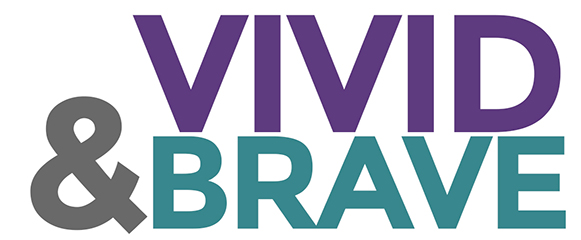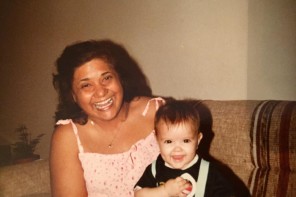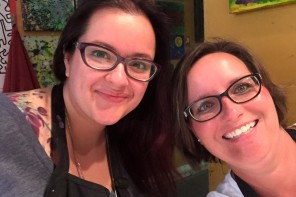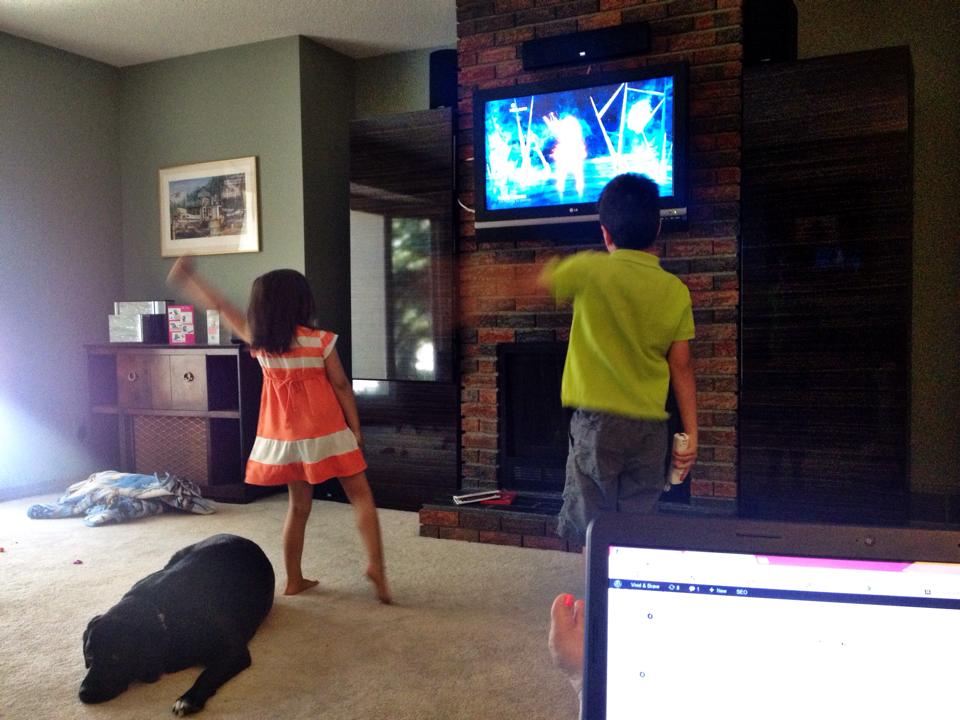I’m pretty broken in places.
You are, too, probably. We all are. Very few of us make it into adulthood without a few battle scars.
A recent conversation with a friend has me thinking about brokenness, and why I seem to still cling so hard to some old habits that came out of protecting myself from early wounds. I think the stuff we have the hardest time letting go of is the stuff we used to use to ensure our survival – reflexes to duck and cover, to flinch, to protect our soft spots. We move out of peril and into safety and we can’t stop ducking.
In my teens, I was sexually assaulted repeatedly. He used very typical methods of coercing silence – threats to my mother, an insistence that I was asking for it. Though eventually I did go to the police, by the time I did, he was long gone, skipped town and not to turn up again for nearly 10 years, when he was finally arrested, charged, tried and convicted. I don’t share this story often, nor do I keep it a secret. It is a story. One that lives inside of me, one I carry around. It involves more than just me, because it rippled outward into my family like a shockwave. We all duck a little bit. We’re all trying to protect this soft spot.
Afterwards, I needed desperately to reassert my control over my body, so I offered myself up, time and time again, in bars, in shallow relationships, to men who would never care, and who helped me to prove that I wasn’t worth anything more than what my body offered. This too, was the way I was ducking. No one could hurt me if I never allowed them in. No one could take from me if I always gave what they wanted. Over time, that inability to offer anything more than what I wore on the surface led to men I connected with slipping away from me – the walls were too high, my armor too thick. There it was – I wasn’t worth sticking around for.
Returning to singlehood as I have over these last three years, I’ve been forced to take another look at this piece of my brokenness, because it has cropped up again, though at first it was so well hidden, I misread it as something entirely different.
Those who know me know I’m pretty happy as a single girl. I enjoy alone. My alone is pretty sweet. It’s got space and time for writing and travel and friends who bring me joy, and my kids, and my career. It’s an alone so bursting full of goodness that it’s full and rarely lonely. I’ve dipped my toes into the dating pool a few times and even dove in twice.
It’s the diving I want to talk about. Well, and the dipping.
Because you see, every time I’ve sensed myself coming in close to something that might hurt, my walls fly up. I can’t imagine letting anyone into this space of mine. I don’t know how to make the room and open the door. When I dove I chose emotionally unavailable men who would never force their way in. They didn’t want to be here, as much as I didn’t want them to be here. It worked perfectly. Except for being utterly soul sucking. Dating is all emotional landmines, so I’ve just refused to walk, unless it will confirm that truth up there that I’ve been clinging to – that I’m not worth sticking around for.
This is how I’m still carrying my brokenness. This is how I’m guarding my soft spot.
So the question is, how do we put the brokenness down? How do we honour our battle scars without letting them define us and how we move forward?
We trust that we are safe now.
That we don’t need to wear so much armor, anymore. That now the armor is hurting us more than the hurt itself did.
We remind ourselves that we made it the last time and it didn’t kill us.
We set it down. Consciously. We make the decision to be vulnerable and open to the possibility of hurting again.
It might hurt again.
I confessed to my friend that I was afraid to let go of my broken parts because I was unsure of who I was without them. I feel so strongly connected to this part of my truth. This reality of the “bad” in me which became such an intrinsic and vital part of my being. I believed my own hype.
So more than just that… how do we set down our brokenness, and stop believing we are the sum of our broken parts and nothing more?
We have to start to believe that the brokenness in us isn’t defining. That without it, we’ll still be whole, fully formed people. That in fact, we’ll likely be far more authentic versions of ourselves when we stop flinching back from pain. If we met it head on, didn’t duck, and got to experience the fullness of showing up completely, how much richer would life be?
Stephanie Ostermann
I’m a communicator. That’s a PC way of saying I like to talk, but I also spend a lot of my time listening, and over the years, I’ve developed a sense for subtext – how one or two words can change your entire message, what people are really trying to say and how to weave the varied layers of your story into one cohesive brand message that your clients fall in love with.
When I'm not acting as editor in chief for Vivid & Brave, you can find me geeking out over words here.
Latest posts by Stephanie Ostermann (see all)
- Inventing Insecurities | No, I Don’t “Need” Eye Cream - February 24, 2017
- You Don’t Have to Be Friends With Your Ex (Or His New Wife) - November 23, 2016
- Grief & Landlines - September 20, 2016




